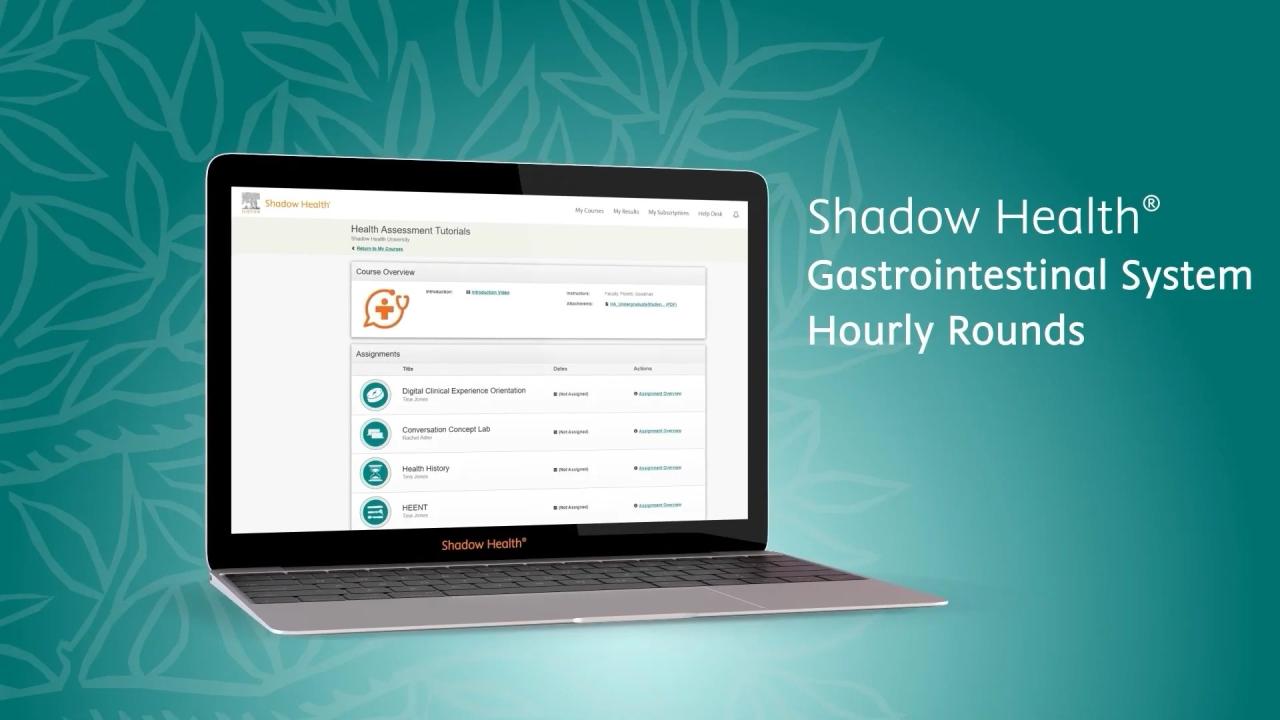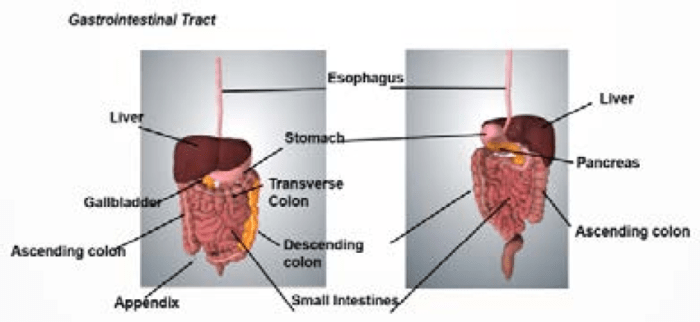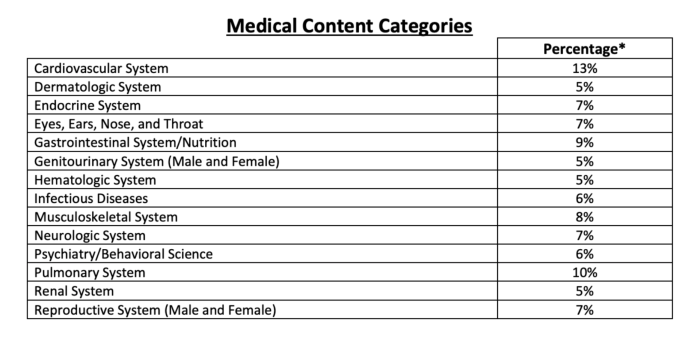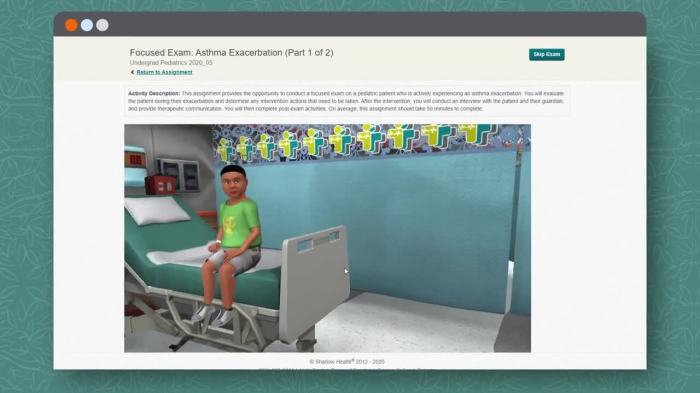Delve into the intricacies of gastrointestinal system hourly rounds shadow health, a practice that empowers healthcare professionals with the knowledge and skills to provide optimal care to patients with gastrointestinal conditions. This comprehensive guide offers a thorough examination of patient assessment, common gastrointestinal complaints, nursing interventions, collaboration and communication, and documentation and evaluation, ensuring a holistic understanding of this essential aspect of patient care.
As we embark on this journey, we will explore the significance of meticulous patient assessment, encompassing physical examination techniques and comprehensive medical history gathering. We will delve into the most prevalent gastrointestinal complaints, unraveling their differential diagnoses and the appropriate diagnostic tests employed for evaluation.
Patient Assessment: Gastrointestinal System Hourly Rounds Shadow Health

Performing a thorough patient assessment is crucial for identifying and managing gastrointestinal issues effectively. This involves obtaining a comprehensive medical history, conducting a detailed physical examination, and evaluating the patient’s current medications and lifestyle habits.
Physical Examination Techniques
- Inspection:Visual examination of the abdomen for distension, scars, masses, or hernias.
- Auscultation:Listening to the abdomen for bowel sounds, bruits, or other abnormal noises.
- Percussion:Tapping the abdomen to assess for tympany, dullness, or fluid.
- Palpation:Feeling the abdomen for tenderness, masses, or organomegaly.
Medical History and Lifestyle Factors
- Dietary habits:Assess the patient’s diet, including food intake, meal frequency, and fluid consumption.
- Lifestyle factors:Determine the patient’s exercise habits, smoking status, alcohol consumption, and stress levels.
- Current medications:Review the patient’s medications, including prescription and over-the-counter drugs, to identify potential gastrointestinal side effects.
Common Gastrointestinal Complaints

- Abdominal pain:Can indicate a wide range of underlying conditions, from indigestion to appendicitis.
- Nausea and vomiting:May be caused by various factors, such as gastroparesis, food poisoning, or motion sickness.
- Diarrhea:Characterized by frequent, loose stools, can be caused by infection, inflammation, or malabsorption.
- Constipation:Difficulty passing stools, can be caused by dehydration, certain medications, or underlying medical conditions.
- Dysphagia:Difficulty swallowing, can be caused by esophageal strictures, Zenker’s diverticulum, or neurological disorders.
Differential Diagnoses and Diagnostic Tests
The differential diagnoses and diagnostic tests associated with each complaint vary depending on the patient’s symptoms and history. Common tests include:
- Upper endoscopy:Visual examination of the esophagus, stomach, and duodenum.
- Colonoscopy:Visual examination of the colon and rectum.
- Barium swallow:X-ray study of the esophagus, stomach, and small intestine.
- Ultrasound:Non-invasive imaging technique to assess the liver, gallbladder, and pancreas.
- Stool analysis:Examination of stool samples to identify infections, parasites, or other abnormalities.
Nursing Interventions
- Medication administration:Administering medications as prescribed, including antiemetics, antidiarrheals, and proton pump inhibitors.
- Dietary modifications:Providing guidance on dietary changes, such as the BRAT diet or low-FODMAP diet, to alleviate symptoms.
- Patient education:Informing patients about their condition, treatment options, and lifestyle modifications to promote self-management.
Rationale and Monitoring, Gastrointestinal system hourly rounds shadow health
Nursing interventions are based on the patient’s specific symptoms and underlying condition. Monitoring patient response to interventions is crucial to assess their effectiveness and adjust the care plan accordingly.
Collaboration and Communication

Interdisciplinary collaboration is essential for providing comprehensive care to patients with gastrointestinal conditions. This involves working closely with physicians, dietitians, pharmacists, and other healthcare professionals.
Effective communication is vital to ensure clear understanding of patient needs, treatment plans, and discharge instructions. This includes communicating with patients, families, and other healthcare professionals.
Strategies for Clear Communication
- Use plain language:Avoid medical jargon and use language that patients and families can understand.
- Provide written materials:Offer handouts or brochures that summarize important information.
- Use teach-back methods:Ask patients to repeat back instructions to ensure comprehension.
Documentation and Evaluation

Accurate and timely documentation is crucial for tracking patient progress, communicating with other healthcare professionals, and evaluating the effectiveness of care.
Documentation Guidelines
- Patient assessments:Document the patient’s symptoms, physical examination findings, and any interventions provided.
- Interventions:Document all medications administered, dietary modifications, and patient education provided.
- Outcomes:Record the patient’s response to interventions, including any improvements or changes in symptoms.
Evaluation and Improvement
Regular evaluation of documentation allows for identification of areas for improvement in patient care. This includes reviewing documentation for completeness, accuracy, and timeliness.
Query Resolution
What is the significance of patient assessment in gastrointestinal system hourly rounds?
Patient assessment forms the foundation of gastrointestinal system hourly rounds, providing a comprehensive understanding of the patient’s condition and guiding appropriate interventions.
What are the most common gastrointestinal complaints encountered during hourly rounds?
Common gastrointestinal complaints include abdominal pain, nausea, vomiting, diarrhea, and constipation.
How do healthcare professionals collaborate during gastrointestinal system hourly rounds?
Interdisciplinary collaboration involves physicians, nurses, pharmacists, and other healthcare professionals working together to provide a comprehensive and coordinated approach to patient care.